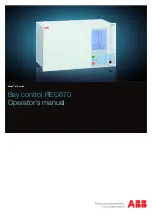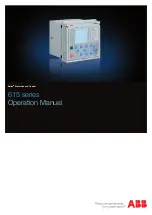
190
Commander SE Advanced User Guide
Issue Number: 4
12.27 Open loop vector or fixed boost modes
Commander SE is a voltage source inverter in which the motor voltage is controlled to correctly flux the motor. The
Commander SE can be set-up in one of two modes to control the voltage to frequency profile to be applied to the motor:
Open loop vector mode
or
fixed boost mode
.
Open loop vector mode
The drive uses the programmed motor map parameters and the motor stator resistance measured during an autotune to
calculate the voltage to frequency profile to apply to the motor.
Motor Map Parameters:
06
Motor rated current
07
Motor rated speed
08
motor rated voltage
09
Motor power factor
If the motor is not a standard 50 or 60Hz motor, the following parameters should also be set correctly before an autotune is
carried out:
02
Maximum speed
39
Rated frequency
40
Number of motor poles
To maintain optimum performance, if any motor map parameters or components are changed within the system that may
effect the parameters measured during an autotune i.e. motor cabling, motor, motor line chokes, another autotune should be
performed.
Fixed boost mode
The drive uses the programmed motor map parameters and the programmed percentage boost level to calculate the voltage
to frequency profile to apply to the motor. An autotune is not required as the stator resistance is not used to calculate the
voltage to frequency profile. The motor map parameters should still be entered correctly.
Open loop vector or fixed boost
At low motor speeds, the motors stator resistance increases and therefore the stator voltage drop of the motor increases. To
try to maintain a constant flux within the motor, the motor terminal voltage must be increased at low motor speed to
compensate for the increase in stator resistance. This is particularly important in high starting torque applications where the
stator voltage drop will be greater due to the increase in stator current.
Open loop vector automatically increases the terminal voltage at low motor frequency and applies a V/f profile dependant on
the values measured during an autotune.
Fixed boost increases the terminal voltage and applies a voltage/frequency profile dependant on the % value of boost.
The main advantage of using open loop vector mode over fixed boost mode is that the motor will be correctly fluxed over all
motor frequencies below base speed. In fixed boost mode, it is very difficult to set the correct amount of boost and it is very
easy to overflux the motor, which can cause the motor to stall and/or overheat. Normally the boost level is set by the method
of trial and error.
Saying that, it may be possible to set the boost level to a value to get increased performance or better starting torque at low
speed because the applied motor terminal voltage is slightly greater than that applied when in open loop vector mode.
Stator Resistance
It is possible to manually change the measured stator resistance value, parameter
5.17
. Increasing this value slightly will
increase the amount of volts applied to the motor at low frequency. This will have the effect of increasing the starting torque.
Increasing the stator resistance by too much can cause the motor to be overfluxed and cause the drive to trip on over current.
If a high starting torque is not required e.g. fan or pump application, the performance at low speed is not important so open
loop vector or fixed boost mode with very low % boost or even 0% boost can be used.
In both open loop vector mode and fixed boost mode, the motor voltage is increased above the normal V/f curve up to half
motor rated frequency. Above this, the V/f curve follows the standard V/f profile.





































